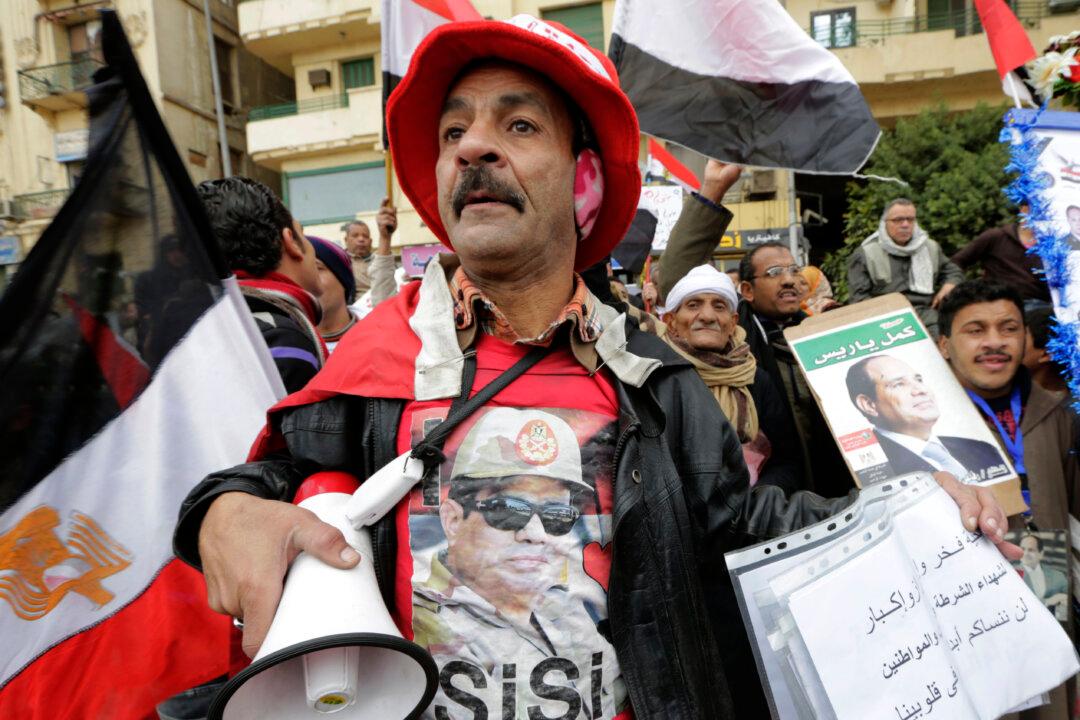CAIRO—Egypt on Monday marked the fifth anniversary of the popular uprising that toppled longtime autocrat Hosni Mubarak but failed to bring about the goals of democracy and freedom the young activists who spearheaded the “revolution” had espoused.
Amid concerns over new outbreaks of violence, the run-up to the anniversary saw stepped-up security in the capital, Cairo, as well as a new wave of arrests and security checks in the city’s downtown area, where cafes and art galleries are popular with young, pro-democracy activists.
Thousands of police were deployed outside police stations, security offices and vital installations, while riot police backed by armored vehicles stood ready around Cairo’s Tahrir Square — the focal point of the 2011 uprising — and outside the nearby, Nile-side headquarters of state television. Streets leading to key government buildings were sealed off.
The day’s first violence occurred in the Cairo suburb of October 6, where police killed two suspected militants during a raid. The official MENA news agency said explosives and firearms were found in the raided apartment.
Egypt’s President Abdel-Fattah el-Sissi has since the overthrow of Islamist president Mohammed Morsi in 2013 overseen a harsh crackdown that has jailed thousands of Islamists and scores of secular activists. The crackdown has forced many of the youths who took part in the uprising to flee Egypt or abandon politics.
The crackdown has also coincided with a significant escalation of a Sinai-based insurgency by Islamic militants and the emergence of Egypt’s affiliate of the Islamic State group.
El-Sissi’s government has curbed freedoms and allowed the nation’s police force to return to some of their Mubarak-era practices, including torture, random arrests and, more recently, forced disappearances. A recently elected parliament is packed with el-Sissi’s supporters and unlikely to challenge his policies.
In speeches over the weekend, el-Sissi vowed a firm response to any unrest. On Sunday, however, he paid tribute to the 2011 uprising and the nearly 900 protesters killed during the revolt. Egyptians under his rule, he boasted, were building a “modern” state that upholds the values of democracy and freedom.
About 50 el-Sissi supporters gathered Monday in Tahrir Square, handing out candy and flowers to passers-by and members of the security forces. Egypt was observing a double holiday — both Police Day, which dates back to 1952, and Revolution Day, marking the 2011 uprising.





